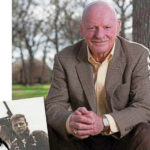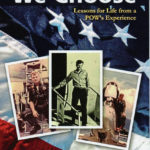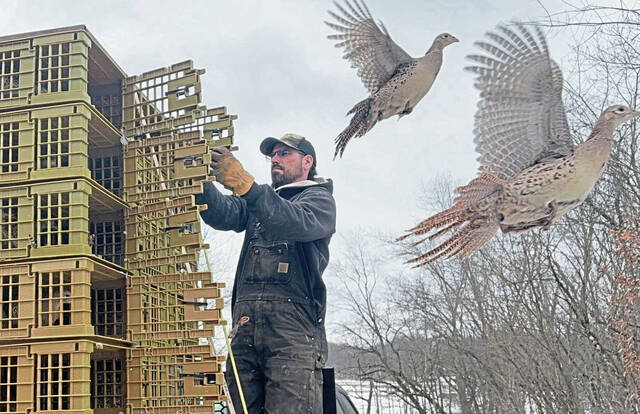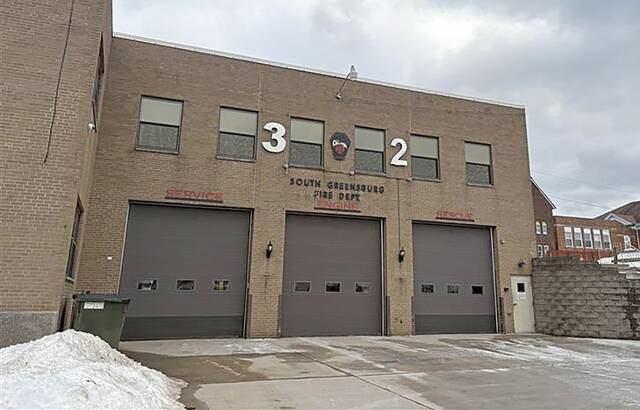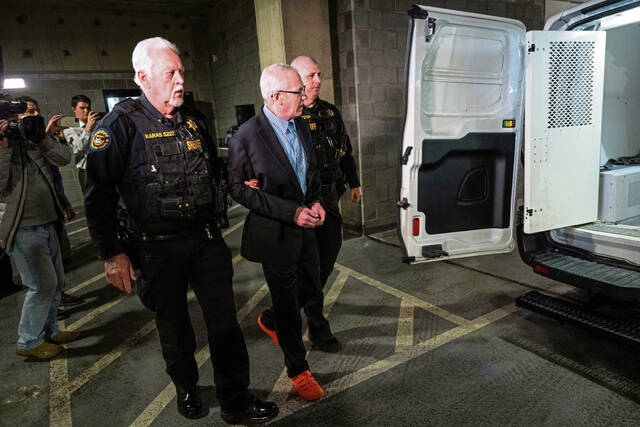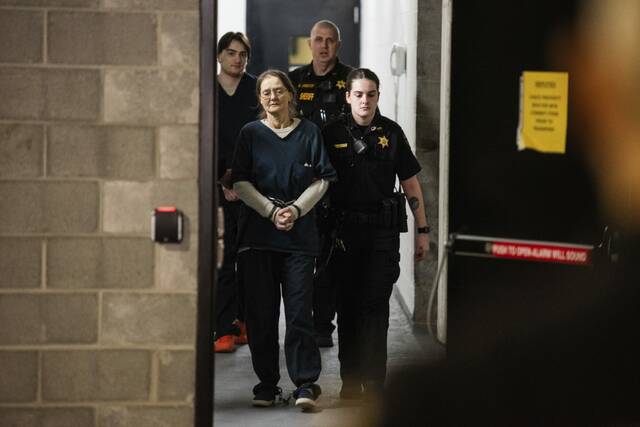Vietnam veteran Dave Carey endured 51⁄2 years as a prisoner of war by talking.
Under the stress of torture, the Jeannette High School and Naval Academy graduate talked to his captors in Hanoi, feeding them invented information to end their interrogation and the physical punishment that accompanied it.
“At times, it was very brutal,” said Carey, 77, a retired Navy captain who lives in Georgetown, Texas, north of Austin.
“They started an interrogation, and beating led to torture,” he recalled of the imprisonment that followed when the Navy Skyhawk attack plane he piloted was shot down on a bombing mission over North Vietnam on Aug. 31, 1967.
Carey later talked to fellow prisoners to relieve the stress of confinement in poor conditions and inadequate diet that took a toll on him. Existing on rice or bread and an unidentifiable soup, Carey dropped from about 180 pounds to 125 pounds during his half-decade as a prisoner.
“We were doing group therapy in those cells,” he said. “When you had six or eight guys locked up in a cell, you could talk about anything, and then you could talk about it some more.”
Drawing upon those experiences, Carey has become a motivational speaker and has written a related book, sharing the life lessons that pulled him through his wartime ordeal.
He’ll return to Western Pennsylvania to speak at an Oct. 25 dinner at the Ramada by Wyndham Greensburg Hotel and Conference Center in Hempfield. Sponsored by the local veterans support group Veteran Angels and by Ford Motors, the dinner is free for veterans and costs $24 for all others.
Founded by Unity resident and Army veteran Tom Abraham, who was a boyhood friend and athletic rival of Carey’s, Veteran Angels is a charitable, nondenominational organization that helps veterans who suffer from combat trauma seek healing through spirituality and small-group retreats.
Reflecting on the courage Carey must have needed as a POW, Abraham said, “I felt he drew heavily on his faith in God, friends and family, and that’s the kind of thing I want to impart to the veterans who come to my retreats.”
When asked how he and his cellmates were able to survive more than five years in captivity, Carey said, “We did what we had to do, we did our best and we did it day after day. We kept our sense of humor and kept faith in ourselves, each other, our country and in God.”
Carey and his fellow POWs found creative ways to defy and surpass the limitations of their imprisonment. They staged debates and Carey, with lessons from another prisoner, practiced playing a simulated piano keyboard drawn on toilet paper.
Carey said that most of his life he’s been a “jock” who is mindful of physical fitness, and he believes that probably helped him to rebound from the punishment his body underwent in the Hanoi prison camp.
During one interrogation and torture session, after guards tightly bound his arms and crossed ankles, “with lots of attendant hitting, pushing and pulling, my elbows were drawn up away from my back and my torso was bent down toward my ankles,” Carey said. “The pain was indescribable. My arms, shoulders, back and hips were all being torn and dislocated.
“Eventually, I hurt so bad that I knew if this kept up I was going to go crazy. I knew I had to do something. I lied about everything I possibly could imagine.”
At one point, he said, his captors “wanted to know the names of all the pilots in my squadron. I gave them the lineup of the Pittsburgh Pirates. I just attached Navy ranks to them.”
After the torture ended, he said, “My arms did not work for weeks. I ate by sticking my face in a bowl of rice.” In the long term, he said, “I had some arthritic things in my shoulder and arms and nerve damage in my arms, but I was very fortunate.”
Two other POWs who were recaptured after an attempted escape weren’t so lucky, Carey said. During their resulting torture, one died. That wasn’t enough for the captors, who then “tortured the senior guy in every cell in every building,” he said.
Carey didn’t encounter the hostile reception many other returning Vietnam veterans received from opponents of the war. Instead, he and fellow POWs were embraced as heroes following their release in a March 14, 1973, prisoner exchange, he said.
“This country was so desperately looking for something good to come out of Vietnam,” he said. “We were the good thing that was coming out of the whole conflict, and we were welcomed home with open arms.”
After debriefing and care in a military hospital, “In six months I was back in the cockpit,” he said, explaining he continued his Navy career at a base in San Diego, where he was in command of a training squadron that took the role of Soviet or Third World aircraft in simulated dogfights against Navy and Air Force pilots.
Before retiring from military service in 1986, Carey served as director of the Navy’s Leadership and Management program. His military honors include the Legion of Merit, five Bronze Stars, two Meritorious Service medals, the Purple Heart, eight air medals and the Navy Commendation Medal.
As well as booking speaking engagements, Carey has worked as a life coach and consultant.
Carey normally returns to Westmoreland County every five years to attend the reunion of the Jeannette High School Class of 1960. “I haven’t been back in a while. I’m looking forward to this,” he said of his upcoming speaking engagement near Greensburg.
“I have spoken to almost any kind of audience you can imagine, including veterans, businesspeople and high school groups,” Carey said. “I think the lessons are universal, and you can apply them both professionally and personally.
“I’ve come to believe we were created to process outside of ourselves what we cannot do very well in our head. You need to get it out, either verbally or even in writing, to get clear about what you are thinking. Then you have it at arm’s length, and you can look at it or think about it much more objectively.”
Visit www.davecarey.com to learn more about Carey. His book is titled “The Ways We Choose: Lessons for Life from a POW’s Experience.” Visit www.a-veteranangels.org for more information about Abraham’s organization.




